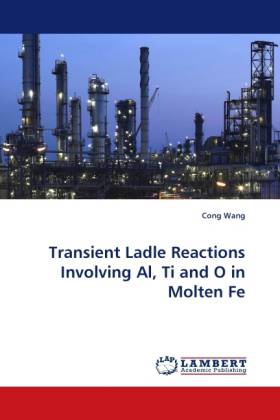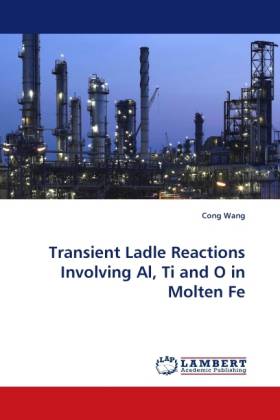
- Afhalen na 1 uur in een winkel met voorraad
- Gratis thuislevering in België vanaf € 30
- Ruim aanbod met 7 miljoen producten
- Afhalen na 1 uur in een winkel met voorraad
- Gratis thuislevering in België vanaf € 30
- Ruim aanbod met 7 miljoen producten
Zoeken
€ 77,95
+ 155 punten
Omschrijving
It has been suggested that Ti-containing inclusions could cause clogging of the submerged entry nozzle, decrease continuous casting productivity, and is a source of surface defects on the steel products. It is the aim of this project to investigate whether the existence of Ti-containing inclusions can be the results of transient conditions, which can be caused by (i) local and temporary variation of the Ti/Al, (ii) fluctuations in melt temperature and (iii) changes in O availability. The approach undertaken in this study is to simulate transient conditions for the Fe-Al-Ti-O melts and sample the melts as a function of time during a time period that is of relevance to industrial ladle processing. The samples are characterized for inclusion shape, size and chemistry through scanning electron microscopy (SEM), inclusion structure and detailed chemistry through transmission electron microscopy (TEM) and chemical analysis. The influences of the following variables on the inclusion characteristics have been investigated: 1) Ti source, 2) Ti vs. Al ratio, 3) temperature and 4) time between Al and Ti additions. The starting O content was in all cases in the range between 330-460 ppm.
Specificaties
Betrokkenen
- Auteur(s):
- Uitgeverij:
Inhoud
- Aantal bladzijden:
- 220
- Taal:
- Engels
Eigenschappen
- Productcode (EAN):
- 9783843355162
- Verschijningsdatum:
- 16/09/2010
- Uitvoering:
- Paperback
- Formaat:
- Trade paperback (VS)
- Afmetingen:
- 152 mm x 229 mm
- Gewicht:
- 326 g

Alleen bij Standaard Boekhandel
+ 155 punten op je klantenkaart van Standaard Boekhandel
Beoordelingen
We publiceren alleen reviews die voldoen aan de voorwaarden voor reviews. Bekijk onze voorwaarden voor reviews.











